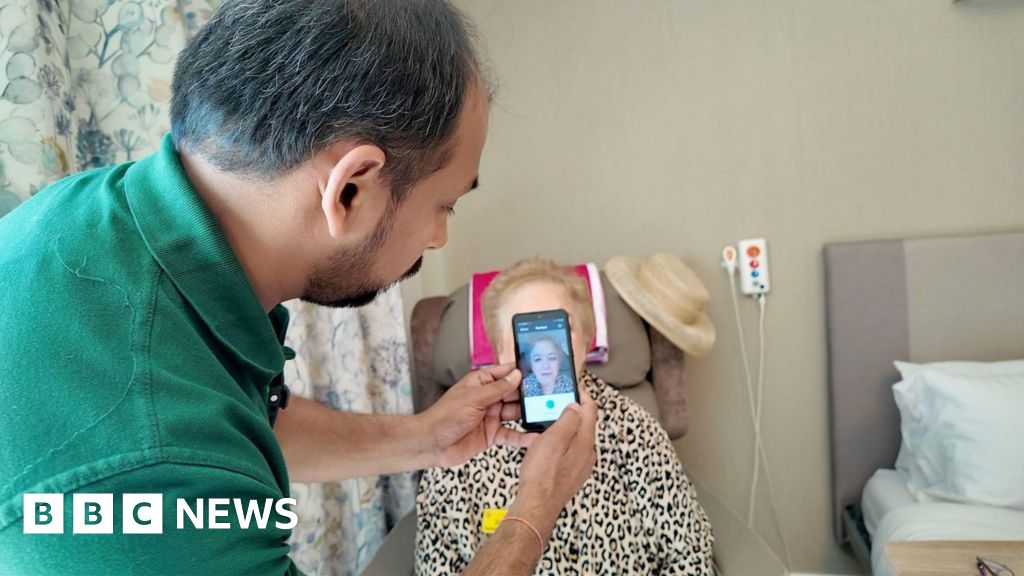- Strategy
What’s the average Social Security payment for May 2025? Plus: Changes for 2026
时间:2010-12-5 17:23:32 作者:Features 来源:National 查看: 评论:0内容摘要:As a communications and engagement manager for a social housing provider in south Wales, writing is Jade's second job.As a communications and engagement manager for a social housing provider in south Wales, writing is Jade's second job.
Experts express concerns about chatbots around potential biases and limitations, lack of safeguarding and the security of users' information. But some believe that if specialist human help is not easily available, chatbots can be a help. So with NHS mental health waitlists at record highs, are chatbots a possible solution?Character.ai and other bots such as Chat GPT are based on "large language models" of artificial intelligence. These are trained on vast amounts of data – whether that's websites, articles, books or blog posts - to predict the next word in a sequence. From here, they predict and generate human-like text and interactions.

The way mental health chatbots are created varies, but they can be trained in practices such as cognitive behavioural therapy, which helps users to explore how to reframe their thoughts and actions. They can also adapt to the end user's preferences and feedback.Hamed Haddadi, professor of human-centred systems at Imperial College London, likens these chatbots to an "inexperienced therapist", and points out that humans with decades of experience will be able to engage and "read" their patient based on many things, while bots are forced to go on text alone."They [therapists] look at various other clues from your clothes and your behaviour and your actions and the way you look and your body language and all of that. And it's very difficult to embed these things in chatbots."

Another potential problem, says Prof Haddadi, is that chatbots can be trained to keep you engaged, and to be supportive, "so even if you say harmful content, it will probably cooperate with you". This is sometimes referred to as a 'Yes Man' issue, in that they are often very agreeable.And as with other forms of AI, biases can be inherent in the model because they reflect the prejudices of the data they are trained on.

Prof Haddadi points out counsellors and psychologists don't tend to keep transcripts from their patient interactions, so chatbots don't have many "real-life" sessions to train from. Therefore, he says they are not likely to have enough training data, and what they do access may have biases built into it which are highly situational.
"Based on where you get your training data from, your situation will completely change."People in Moscow are laughing at this idea, because the party which will suffer the most… is the American shale oil industry, the least cost-competitive oil industry in the world," Mr Milov told the BBC.
Mr Raghunandan says that Russia's cost of producing crude is also lower than in Opec countries like Saudi Arabia, so they would be hurt by lower oil prices before Russia."There is no way that Saudi Arabia is going to agree to that. This has been tried before. This has led to conflict between Saudi Arabia and the US," he says.
Ms Rosner says there are both moral and practical issues with the West buying Russian hydrocarbons while supporting Ukraine."We now have a situation in which we are funding the aggressor in a war that we're condemning and also funding the resistance to the war," she says. "This dependence on fossil fuels means that we are really at the whims of energy markets, global energy producers and hostile dictators."
- 最近更新
- 2025-07-07 11:25:34Simply JigsawPlayMasque Publishing
- 2025-07-07 11:25:34What Merz wants from Trump showdown meeting
- 2025-07-07 11:25:34North Face and Cartier customer data stolen in cyber attacks
- 2025-07-07 11:25:34BlackjackPlayMasque Publishing
- 2025-07-07 11:25:34Spanish 21PlayMasque Publishing
- 2025-07-07 11:25:34Medicines watchdog to open 'digital hub' in city
- 2025-07-07 11:25:34When joy turned to horror for Bengaluru fans celebrating team's IPL win
- 2025-07-07 11:25:34Simply JigsawPlayMasque Publishing
- 热门排行
- 2025-07-07 11:25:34Alpha Grillers Digital Meat Thermometer
- 2025-07-07 11:25:34TikTok Shop food listings 'putting people at risk'
- 2025-07-07 11:25:34How to pay off your credit card debt
- 2025-07-07 11:25:34Word SearchersPlayMasque Publishing
- 2025-07-07 11:25:34survey by the Employee Benefit Research Institute
- 2025-07-07 11:25:34Solitaire: FreeCell Sea TowersPlayMasque Publishing
- 2025-07-07 11:25:34Federal Deposit Insurance Corporation
- 2025-07-07 11:25:34Are the surprise airfield attacks a turning point for Ukraine?
- 友情链接
- NBA Finals: Tyrese Haliburton speaks out after Achilles injury in Game 7, apologizes … Sarah Michelle Gellar wants to ‘bring back everyone who has died’ in the original for… 17 easy make-ahead dishes for stress-free summer picnics The Pioneer WomanLooking for a healthier snack? Fuel up with these high-protein ideas Search continues for 1 person still missing after 7 killed when boat capsized on Lake… Which goddess represents you, based on your zodiac sign For Independence Day, NPR wants to know: What does freedom mean to you? Steve Bannon and a large chunk of the president’s base oppose further attacks on Iran Sprawling Heat Dome Could Smash June Records In Northeast, Midwest, Including 100s In… Steve Bannon and a large chunk of the president’s base oppose further attacks on Iran NBA Finals: 1 bettor wagered $8 million (!) on the Oklahoma City Thunder to win the t… Israel says 3 killed in Iranian barrage after Trump announces ceasefire Which goddess represents you, based on your zodiac sign 12 of our most popular Fourth of July recipes McDonald’s faces boycott over DEI rollback: Who’s protesting and when Clippers star James Harden sued for alleged negligence in sexual assault case AOLThe 11 best hot sauces of 2025, according to chefs Estate & Retirement Planning After Tariffs, What’s Next for Investors? Amid Iran market risks, watch gas as well as oil AOLThe 11 best hot sauces of 2025, according to chefs 17 easy make-ahead dishes for stress-free summer picnics Higher European spending may please Trump but will not be enough to rebuild confidence 4 hours ago For Independence Day, NPR wants to know: What does freedom mean to you? Always PetsWeird things you do that tell your dog you’re leaving the house McDonald’s faces boycott over DEI rollback: Who’s protesting and when Sarah Michelle Gellar wants to ‘bring back everyone who has died’ in the original for… 16 people sent to ER during New Jersey graduations as a potent heat dome builds over … Maps show heat wave forecast as much of U.S. swelters Report: Iran state media says an attack has begun on U.S. bases in Qatar and Iraq
